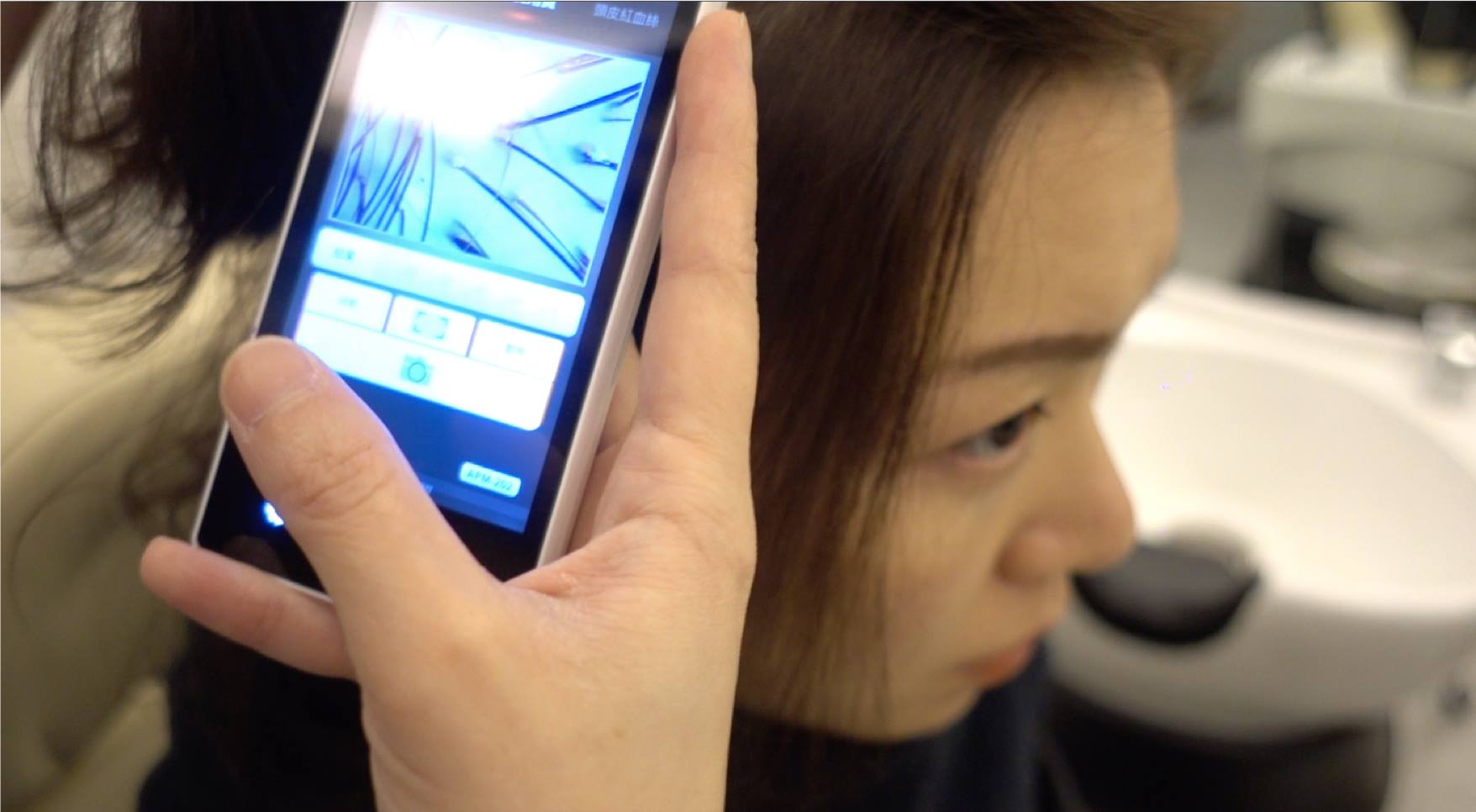By Localiiz
Branded | 17 May 2024
By Localiiz
Branded | 14 May 2024
Copyright © 2025 LOCALIIZ | All rights reserved
Subscribe to our weekly newsletter to get our top stories delivered straight to your inbox.
Losing hair is completely natural—statistically, we shed up to 100 strands every day—but finding alarming amounts building up in the plug hole after every shower, or sweeping countless strands off the floor in your apartment, might be a sign it's time to take action.
While it's true that men are more likely to lose their hair than women—mostly due to male pattern baldness, which affects one in four Hong Kong males—this is actually a condition that both sexes suffer from, but in different ways. The good news is there are simple steps you can take to avoid shedding. To find out more, we chat to Sam Pan, salon director at Muse Hair, which provides medical scalp care.


According to Pan, there are two main types of hair loss that affect both men and women, but in different ways. Progressive hair loss (also know as androgenic alopecia) is caused by genetics or hormones, and causes a slow and progressive weakening of the hair bulb (or root) until it finally wastes away. Unfortunately, this type of hair loss is irreversible and out of your hands.
In men, progressive hair loss is also known as male pattern baldness, where the hairline recedes over time to form a characteristic "M" shape. This is believed to be caused by a combination of genetics and the natural male steroid, dihydrotestosterone, which helps regulate everything from neurological health to blood cell production. Although this steroid is crucial in helping the body to function properly, it can also cause certain physiological changes, one of which is alopecia (or balding).
Progressive hair loss in women differs from male pattern baldness. In women, the hair becomes thinner all over the head, and the hairline does not recede. This rarely leads to total baldness, but rather an overall thinning of the mane, which is unfortunately not preventable.
The second kind of hair loss is called reactive hair loss, which is a temporarily increased shedding caused by a wide variety of health and hormonal changes. Unlike progressive hair loss, which slowly develops over time, reactive hair loss occurs suddenly, and varies in intensity, from general thinning to the formation of completely hairless areas (or alopecia areata).
Aside from possible underlying health conditions, this type of hair loss is the result of temporary disruption of the hair’s life cycle due to internal or external factors. These include stress, diet, hormonal changes, childbirth or menopause, medications, ultraviolet radiation, x-rays, too much styling, or too little washing. Fortunately, this condition can be fixed with a few simple but effective lifestyle changes.
In many cases, there are ways for both men and women to prevent and treat hair loss, and it all depends on the cause. Here are ten tips from the Muse Hair team:

If you have severe thinning or hair loss, you can go one step further and opt for a personalised scalp nutrition treatment. Muse Hair offers one such service where they will analyse your scalp using a Hair Diagnostic tool, which is a special camera that can zoom in 300 times closer than a regular camera to take a snapshot of your scalp and hair follicles. They then analyse what nutrition is needed for your scalp to design a treatment using a special range of Medavita Cutis Pura products from Italy, which are made with pure plant extracts. The treatment (between $1,200 to $2,800 for 90 minutes) works to detoxify the scalp and restore it to a healthy condition, whether that means reducing dandruff, clearing deposits of sebum, or restoring moisture.
Muse Hair, M3 Baskerville House, 13 Duddell Street, Central | (+852) 2623 9626
EstheClinic have also developed an innovative and effective treatment for hair restoration and regrowth for both sexes. With their Low-Level Laser Therapy (LLLT) award-winning treatment, you can get your lovely locks back, looking healthy and strong from root to tip.
LLLT delivers a cool, laser energy to the scalp tissue to strengthen hair fibres and stop hair from falling out so easily. It stimulates self repair in the hair follicles and slows down degeneration while acting on blood and lymphatic circulation to restore hair growth. The treatment's prices start at $920 per 60-minute session, with à la cart rates also available.
EstheClinic, 16/F, 8 Lyndhurst Terrace, Central | (+852) 3615 0919 or (+852) 9158 9729 (WhatsApp)


Top
